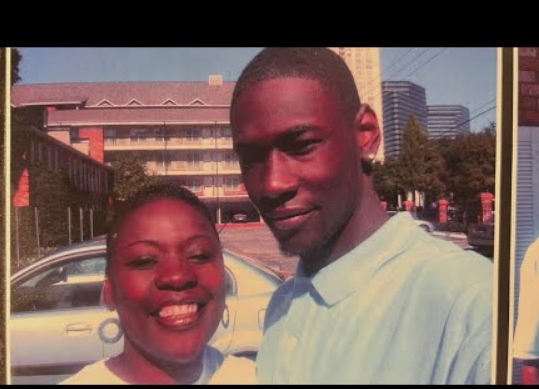In the quiet corridors of grief, Harvetta Jackson bears the unbearable weight of losing not one but two children to the silent assailant known as sudden cardiac arrest. The pain etched in her eyes tells a story of heartache that transcends understanding.
Phillip Jackson, a promising athlete excelling in football and basketball at Sandalwood High School in Jacksonville, seemed the epitome of health. Yet, on December 21, 2009, what should have been a celebration of his 18th birthday turned into a devastating tragedy. Phillip, or Big Phil as his friends affectionately called him, collapsed during a basketball game, leaving a void that could never be filled.

“He fell into one of his players. And then he’s such a jokester, they thought he was just playing,” Jackson recalled, a painful replay of the moment etched in her memory.
The tragedy unfolded swiftly, and despite his athletic prowess, Phillip succumbed to sudden cardiac arrest. In the absence of life-saving measures such as CPR or an Automated External Defibrillator (AED), a promising life was tragically cut short.
“They called it cardiac conduction system, where the heart misfires. And if no one does anything, we don’t have AED machines there, or anything like that, CPR, they don’t make it. And unfortunately, my son was one of those children,” Jackson painfully explained.
Sudden cardiac arrest occurs when the heart’s electrical system malfunctions, leading to an abrupt cessation of its beating. Dr. Jonathan Drezner, leading the Center for Sports Cardiology at the University of Washington, emphasizes that while competitive athletes face a higher risk, any child or young adult could be susceptible.
“Really any child could potentially be at risk. But we know that competitive athletes are about three times the risk of their age match peers when we look at the scientific studies,” Dr. Drezner states. He underscores the importance of identifying potential risks through tests like electrocardiograms (EKG or ECG).
Tragically, Phillip had never undergone such a test.
In 2016, the devastating echoes of grief returned when Jackson lost her 29-year-old daughter, Latoya, born eight years apart from Phillip. Latoya’s life was claimed by a sudden cardiac arrest triggered by a severe asthma attack.
“You never know when it’s going to happen. And it needs to be prevented. I mean, they can collapse singing, dancing, walking, anything,” Jackson passionately emphasizes, pleading for awareness and preventive measures.
Dr. Drezner notes that around one in 300 young people has a heart condition that might lead to sudden cardiac arrest, conditions often detectable through an electrocardiogram.
Jackson’s heart-wrenching experience underscores the importance of proactive measures in preventing sudden cardiac arrests. Her plea resonates not just as a personal tragedy but as a call to action for every family. The loss of her children fuels her determination to ensure that others do not endure the same pain needlessly.
“You never know when it’s going to happen. And it needs to be prevented. I mean they can collapse singing, dancing, walking, anything,” Jackson said. “We need to get these tests done so our children can live. I just want to make sure that no one else’s child passes away when we can do something about it.”
Read More:
- New York Unsealed Documents Expose Connections in Jeffrey Epstein Defamation Lawsuit
- Deep in the Heart: Exploring the Top 5 Most Conservative Cities in Texas
In the haunting silence that follows the Jackson family’s profound loss, there emerges a resounding call for awareness, preventive measures, and access to life-saving resources. Harvetta Jackson’s story stands as a testament to the urgent need to prioritize heart health, ensuring that no family endures the anguish of losing a loved one to sudden cardiac arrest.

